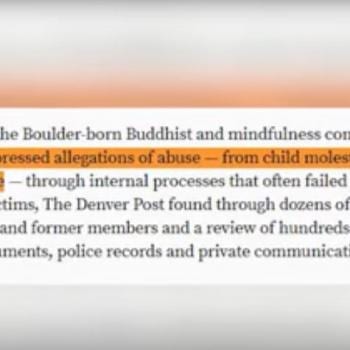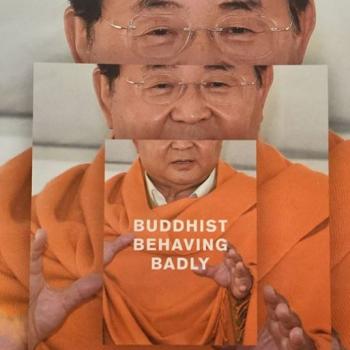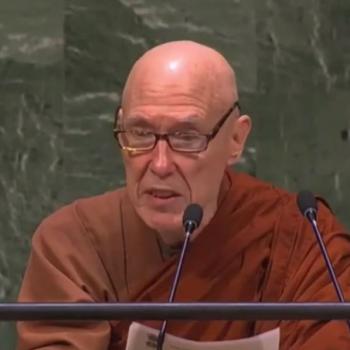
One of my new year’s resolutions this year was to focus more clearly and fully on my phd work, including here at this blog. 26 days in, and I’m ready to start (procrastination is okay).
Where were we? Oh yes, Buddhist Ethics.
To put it succinctly, I’m re-evaluating Buddhist ethics and comparing it to Kantian ethics. This is difficult because Buddhist ethics is very difficult to pin down: do we mean sila? Vinaya? Everything suggested as kusala? To simplify things I just work on the Pali Canon and the ‘early’ development of the Pali tradition: commentaries (where/when helpful), same with Abhidhamma, and the Visuddhimagga by Buddhaghosa. I’m really trying to focus on the earliest material possible; this in itself is a difficult task.
Next I’m comparing what I find (and/or create) with the ethics of Immanuel Kant (1724-1804). Many people find this odd, as they have only the barest knowledge of Kant’s ethics, usually reduced to the Categorical Imperative, and that usually reduced to just the first or second formulation of the Categorical Imperative (out of 3, possibly 4 distinct formulations). It’s true that these are key to the Groundwork (hence the title of the book they’re found in) of Kant’s ethics, but there is much, much more to it.
So where are we now? (Or, where am I in my work?) I’m looking at how Buddha and Kant describe “our condition.” I’m looking at (and for – any suggestions would be very welcome) key metaphors in the Pali canon to describe our world. Obvious ones include samsara, suffering/dukkha, the 4 Noble Truths in general, giving a description of the whole ‘problem’, ’cause’, ‘diagnosis’, and ‘path/cure’. On an epistemological level, the metaphor of bodhi, or awakening, itself is interesting. And of course nirvana and, key for my work, dhamma as a metaphysical foundation for morality.
Many people also scoff at the idea that the Buddha had anything to do with metaphysics. This is simply an over-generalization of the Buddha’s refusal to answer certain metaphysical questions. This may also hinge on defining ‘metaphysics’. I take it as a set of beliefs or theories regarding that which goes beyond the world of sensation, generally relating to the foundation for or ultimate nature of the world of our experience.* And the Buddha does clearly talk about the conditioned world (loka/lokiya) of our experience and some further, higher (lokuttara) realm (see the PED for a brief discussion and references).
While the ‘higher realm’ here could be understood as simply the end of the path without any transcendent implications, that fails to explain the binary nature of the term’s use in comparison with worldly, conditioned experience. There is something fundamental that happens as one enters the higher path (one literally becomes a sotapanna, a stream-enterer). And there is something fundamental that happens at the further point of (full) awakening, bodhi. Ven. Yuttadhammo explains this a bit here:
Why call the person at a key stage in the path a ‘stream-winner’ (or ‘enterer’)? Why a stream? Is this a reference back to the (?) Upanishad in which the true self (atman) is said to be a stream flowing toward the sea (brahman)? Or perhaps, though less likely, it is a reference to the quenching of thirst experienced here (thirst being the second noble truth and the cause of suffering). That will be explored, along with other key metaphors, in future posts.











